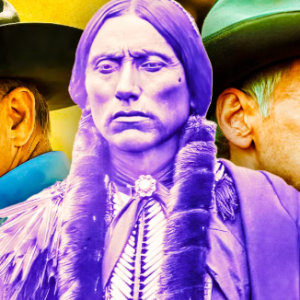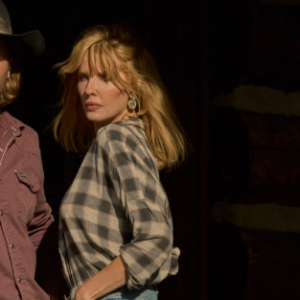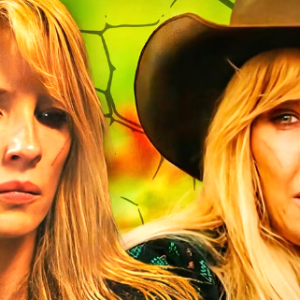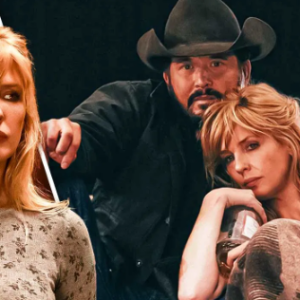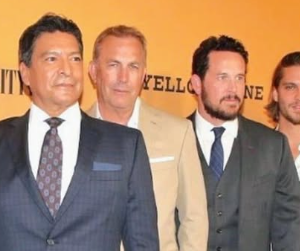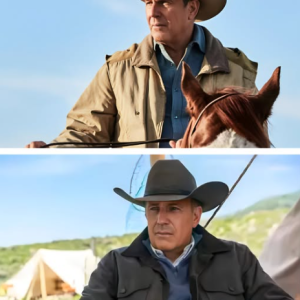While many viewers, and indeed the series’ early marketing, might have positioned John Dutton as the undisputed patriarch and central figure of Yellowstone, a quiet yet profound shift occurs in Season 1, Episode 3, titled “No Good Horses.” This pivotal episode subtly, yet definitively, redirects the narrative focus, establishing Beth Dutton not merely as a vital supporting character, but as the true, volatile heart and soul of the entire saga. It’s a masterful piece of television that, upon rewatch and with the full scope of the series known, unequivocally confirms Beth’s role as Yellowstone’s protagonist, her story the very engine driving the Dutton family’s enduring struggle for survival and legacy.
“No Good Horses” dives deep into the wellspring of Beth’s complexity, spotlighting the profound trauma she endured following the loss of her mother, Evelyn Dutton. This singular event is revealed as the core reason behind Beth’s notoriously sharp tongue, her ruthless ambition, and her often-terrifying volatility. Evelyn, portrayed through poignant flashbacks, was a formidable woman who imposed a strict regimen on Beth, seeking to forge her into a resilient and fearless individual capable of navigating a world predominantly run by men. This upbringing, initially appearing harsh, is retrospectively understood as a desperate attempt to arm Beth for the battles ahead. Consequently, Beth’s subsequent evolution into a cold, unforgiving force was not merely a choice but, in many ways, an inevitable design, a silent, painful tribute to her mother’s legacy and expectations. This psychological wound, compounded by the harrowing betrayal she would suffer at the hands of her brother Jamie years later, allowed hatred and anger to consume her, transforming her into the “tornado” or “bulldozer” that her father, John, would strategically deploy in his relentless defense of the ranch. John himself acknowledges this terrifying efficiency when he tells Jamie that he needs someone who can be “evil,” recognizing Beth’s capacity for such a role despite his love for her.
By the close of Yellowstone’s inaugural season, Beth has cemented her position not just as the emotional core of the series, but as John Dutton’s most fiercely loyal soldier. While Kayce served as an actual soldier and Jamie pursued a legal career, it is Beth who dedicates her entire being to her father, driven by an unyielding promise to him. “No Good Horses” elucidates the genesis of this unparalleled devotion. Unlike her siblings, who often grapple with their own desires, agendas, or moral quandaries, Beth’s actions are presented as raw moments of truth in a family adept at burying genuine emotion beneath layers of pride and ambition. As John engages in political maneuvering with Governor Lynelle Perry, and Kayce struggles with his past and present responsibilities, Jamie ruthlessly advances his own career amidst the family chaos. It is Beth, however, who genuinely mourns her mother’s death on its anniversary, her tears a rare, unfiltered expression of vulnerability that underscores the depth of her emotional burden and, paradoxically, her strength.
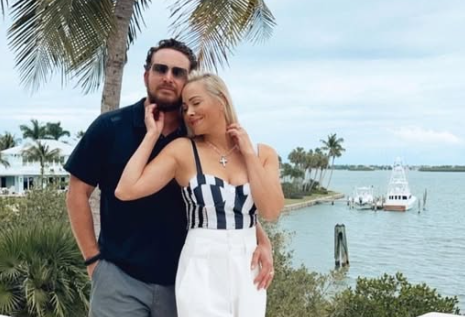
The foundational conflict that defines Yellowstone — a war that rages through the series’ final episodes — is ignited within “No Good Horses,” centered squarely on the escalating feud between Beth and Jamie. While John Dutton may preside over the family’s empire and legacy, it is the emotionally charged and narratively critical power struggle between Beth and Jamie that truly drives the show’s dramatic tension. If, as the narrative suggests, every compelling protagonist requires an equally powerful antagonist, then Beth stands as the clear protagonist, with Jamie her tormented, often tragic, foil. Their long-standing animosity, rooted in a shared, devastating past that Beth weaponizes and Jamie tries desperately to suppress, is not de-escalated by John. Instead, his strategic decision to allow Governor Perry to suggest Jamie run for Attorney General—a move that places Jamie in direct opposition to the family’s best interests as Beth perceives them—throws more fuel onto an already raging inferno.
This decision marks the pivotal moment that sets the stage for the deeply entrenched sibling rivalry, a conflict that becomes the emotional anchor of Yellowstone’s concluding acts. From Jamie’s harrowing discovery of his adoption to his gradual descent into darkness, ultimately implicating him in John’s potential demise, every development feels tragically inevitable when viewed through the lens of “No Good Horses.” This episode unequivocally solidifies Beth Dutton as the series’ main character, foreshadowing the most transformative and impactful character arc of the entire show.
Early in the series, Beth famously declares in a heated confrontation with Jamie that she holds no affection for the ranch, even suggesting she’d hand over her shares to a luxury resort if John were to die. Yet, by the series’ ultimate conclusion, her perspective has undergone a radical metamorphosis. Beth evolves into the ranch’s fiercest, most unwavering protector, willing to commit any act, endure any hardship, and confront any foe to ensure the land remains within the Dutton lineage. This profound evolution is a testament to the masterful storytelling woven into this neo-Western drama. Creator Taylor Sheridan skillfully threads the inherent tragedy of the Dutton family through his narrative, revealing that despite popular belief, it is Beth, not John, who embodies the series’ core struggle. Much like the Dutton women depicted in the prequel series 1883 and 1923, it is Beth who fights with an unparalleled ferocity, dedicating her very essence to safeguarding her family’s legacy against all odds, confirming her as the true, unyielding spirit of Yellowstone.
